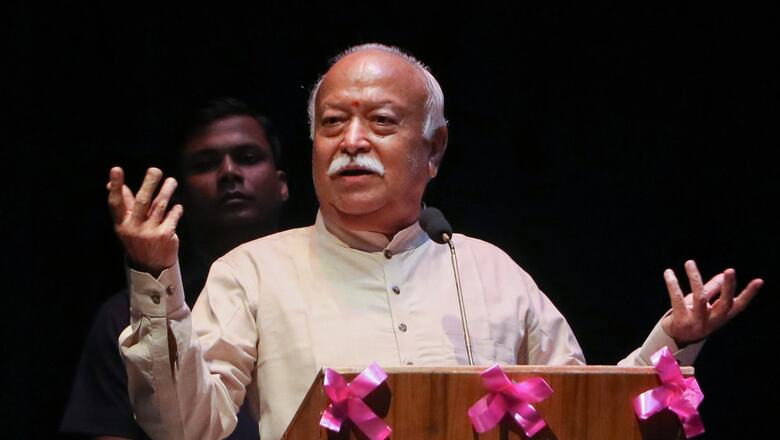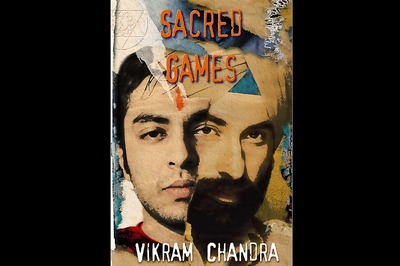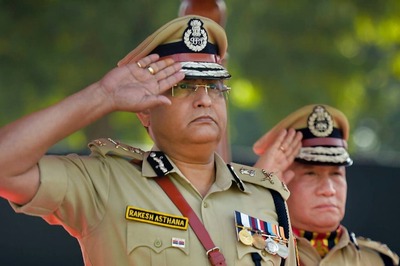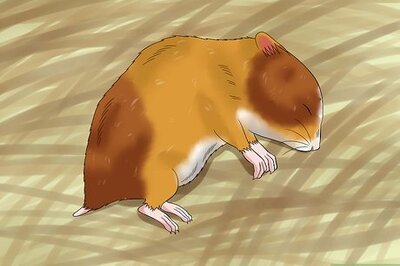
views
The Rashtriya Swayamsevak Sangh (RSS), the largest voluntary organisation in the world and an ideological mentor of the ruling Bharatiya Janata Party (BJP), will turn 100 in 2025. In the run-up to its centenary, the organisation would focus on two key aspects: Establishing the original identity of Bharat by pursuing the quest for selfhood and affirmative action for bringing social equality. Selfhood is denoted as ‘Swa’ and social equality is termed ‘Samajik Samrasta’ in RSS.
That is the message that RSS Sarsanghchalak (Chief Mentor) Mohan Bhagwat gave in his annual speech on Vijayadashami. The annual speech is considered to be a broad indicator of the direction that the RSS prefers to take in the coming year. It often indicates the future plans for the long term. The RSS was founded on Vijayadashami in 1925 and since then every year the Sarsanghchalak delivers an annual address on the occasion. Bhagwat is the sixth Sarsanghchalak to deliver this address.
Two important things must be mentioned here before we discuss this year’s speech. First, the RSS doesn’t believe in short-term measures. It tends to think and act on a scale of 25 years. Second, it is least bothered about electoral politics as it has a firm belief that its aim of achieving the transformation of Bharatiya society can’t be achieved through political power. Thus, observers and analysts who tend to look at the RSS from the BJP’s perspective do not reach the right conclusions.
Meanwhile, in this year’s speech, there are two important aspects that need to be highlighted. Bhagwat said, “As we complete the Amrit Mahotsav of Bharat’s Independence from the British colonial rule, remembrance of the remarkable lives of these inspirational personalities gives us the message of social equality, and unity and integrity and defending the ‘Swa’ or ‘selfhood’. It is a natural desire for a human being to make every effort to safeguard his ‘Swa’ and his inherent identity. As the world comes closer to each other at an astounding pace, nations are increasingly becoming worried about their inherent identities and their sense of the self or ‘Swa’. Attempts to paint the entire world in the same colour or to achieve uniformity haven’t succeeded so far, nor will they succeed in the future.”
“Thus, the desire to preserve the identity of Bharat and the identity of the Hindu society is only natural. It’s no surprise, then, that a crisis-ridden world expects Bharat to emerge with a new vision, germane to the times and based on its own value systems, to meet the contemporary needs and challenges of the globe,” he added.
This search for selfhood is at the core of the RSS’s ideological framework in the 21st century. The RSS firmly believes that the true identity of Bharat is that of a ‘Hindu Bharat’. And when it talks about the Hindu identity, it doesn’t identify it with a way of worship or religion. It associates the word ‘Hindu’ with certain civilisational values that are eternal. The RSS wants a ‘Dharma’ and not a religion-based state and society. ‘Dharma’ is not associated with any way of worship. So Muslims, Christians, Parsis, Sanatanis, Arya Samajis, Sikhs, and Jains while practising their own way of worship can follow the ‘Hindu Dharma’. There is no dichotomy or contradiction. In fact, practising one’s religion and following the rule of Dharma are supplementary actions, according to the RSS.
And this is the true ‘selfhood’ that needs to be found again, accepted and established firmly as the bedrock of Bharatiya society, believes RSS. That is the essence of what Bhagwat has reiterated in his speech today.
Now how will this ‘Swa’ be searched and established and how will ‘Bharatiya’ society become an ideal society? For that, we need to look at the second important aspect highlighted by Bhagwat. He has clearly laid out an affirmative action plan to achieve these goals.
Bhagwat said, “We should deepen our relationships with nature by saving water, removing plastics, and increasing greenery in and around our homes. Let’s strengthen our reliance on ‘Swa’, or self, through Swadeshi. Wasteful expenditure ought to stop, too. Employment opportunities in the country should rise and the country’s money (capital) should be used within and in the interest of the country itself. Hence, the practice of Swadeshi should start from home. Law and order, and responsibilities as a citizen should be followed by all.”
“A climate of harmony and cooperation should prevail in the society. Everybody expects these five behavioural elements to materialise. But it is imperative to make a sustained effort to make this behaviour a part of our nature by starting with small things and practising them regularly and consciously. Apart from serving the needy members of the society, the Swayamsevaks (RSS volunteers) will in the coming days strive to make the society a participant and ally by carrying out these five types of social initiatives.”
It is important to mention here that the RSS volunteers are running close to two lakh welfare projects across the country. There are 36 organisations inspired by the RSS that are working towards the transformation of society. Since the mid-1970s, the RSS has deployed more and more of its energy to work for the marginalised sections of society and assimilate them. Balasaheb Deoras, the third RSS Sarsanghchalak, had said in his famous address at Pune in 1974: “If untouchability is not a crime, nothing is a crime in this world.”
With every passing year, the RSS has been pushing for ‘Samajik Samrasta’ and this is going to be its major focus in Amrit Kaal too. This is what Bhagwat has indicated today. The direction to the RSS volunteers is very clear: they need to go out in the field and work for social cohesion by empowering the socially and economically marginalised sections of society. And while doing this, they must not let go of the quest for selfhood that would establish the true identity of Bharat in years to come.
The writer is an author and columnist and has written several books. He tweets @ArunAnandLive. Views expressed in the above piece are personal and solely those of the author. They do not necessarily reflect News18’s views.



















Comments
0 comment